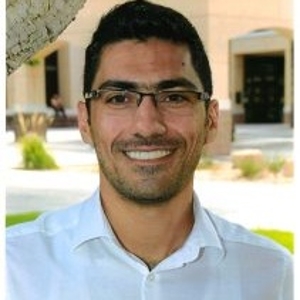Students enroll in traditional courses that prepare them for work as economists. This alternative also best suits the needs of students intending to pursue doctorate-level programs or enter a profession such as accounting or law that requires a deeper understanding of graduate-level economics. Students complete a minimum of 30 credit hours of coursework.
NMSU is the only university in the country that has both a NARUC -sanctioned industry training institute as well as a graduate degree program specific to public utilities regulation. Input the College of Business’s Center for Public Utilities (CPU) receives from individuals who are currently “in the trenches” allows the Masters Program to be continually updated to reflect real world conditions and applications. The CPU’s Advisory Council, comprised of regulatory utility commissioners and utility directors, gives valuable input into the content of the CPU programs. This advisory council also serves as a conduit for procuring permanent employment for NMSU graduates with a MA in economics and a specialization in public utility regulation.
In the end, this produces a graduate from the Masters Program with the up-front skills needed to make an immediate contribution to the employer. Over 150 graduates from this program are currently working in well-paid professional positions within the utility industries and federal and state regulatory agencies. The vast majority of these graduates are native New Mexicans.
The specialization is designed for students pursuing a career in the utility sector with an electric utility company, natural gas utility, water distribution utility, or with a government agency regulating these types of companies.
This program provides advanced technical instruction on utility industry analysis and prepares students for the rigors of utility regulatory methods, policy, and analytical applications.
MA students in Economics may elect to complete this specialization by completing the following courses:
Course Requirements
MA and MS Programs. Ideally suited for those desiring policy analysis positions in major firms in the private sector and for those seeking careers as members of legislative staff and congressional committees.
Economists in the public and private sectors are called upon to render analyses of public policies, including consequences of alternative economic strategies. This option seeks to train master’s-level students in the area of policy analysis using economic principles. Students select areas of concentration such as taxation, natural resources and the environment, agricultural and food policy, human resource policy, and regulatory policy.
MA students in Economics may elect to complete this specialization by completing the following courses:
Course Requirements
Skills acquired in this option should be useful for those who desire to go to the PhD academic level or to have a career involving data analysis.
This option is specifically designed for those who have an interest in quantitative aspects of economics.
Using statistical tools, calculus, computers, and economic theory, econometricians measure and test economic relationships.
MA students in Economics may elect to complete this specialization by completing the following courses:
Course Requirements





